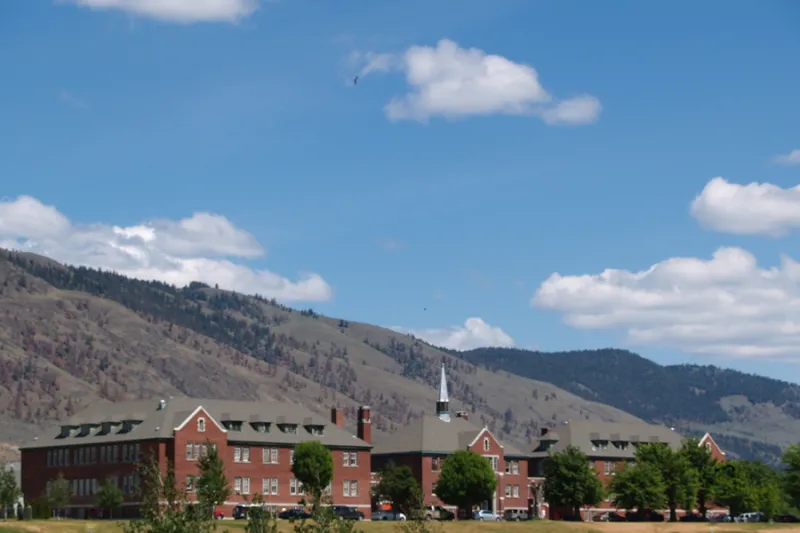
Ottawa, Canada, Sep 27, 2021 / 18:00 pm (CNA).
The Canadian bishops are aiming to raise $30 million (USD 23.8m) over the next five years to support the Indigenous peoples of the country, including survivors of residential schools.
“The Bishops of Canada, as a tangible expression of their commitment to walk with the Indigenous Peoples of this land along the pathway of hope, are making a nation-wide collective financial commitment to support healing and reconciliation initiatives for residential school survivors, their families, and their communities,” the Canadian Conference of Catholic Bishops announced in a Sept. 27 statement.
The bishops will launch fundraising initiatives throughout the country, to be “achieved at the local level, with parishes across Canada being encouraged to participate and amplify the effort.”
The announcement comes days after the Canadian bishops concluded their plenary assembly. At the conclusion of the assembly Sept. 24, the bishops issued an apology for the Church’s role in the country’s residential school system.
Bishop Raymond Poisson of Saint-Jerome and Mont-Laurier, who was recently elected president of the Canadian Conference of Catholic Bishops, said that there was a “universal consensus” among his brother bishops that “Catholic entities needed to do more in a tangible way to address the suffering experienced in Canada’s residential schools.”
“Comprised of local diocesan initiatives, this effort will help support programs and initiatives dedicated to improving the lives of residential school survivors and their communities, ensuring resources needed to assist in the path of healing,” said Bishop Poisson.
Per the CCCB’s statement, the projects will be funded on a local level, with input from area First Nations, Métis, and Inuit peoples. The individual initiatives will be developed and announced by November 2021.
Bishop Poisson said that he hopes that the initiatives result in a “significant difference” in confronting the “historical and ongoing trauma” wrought by the residential school system.
Bishop William McGrattan of Calgary, vice president of the CCCB, emphasized the importance of working with the Indigenous population on deciding how and when to move forward with these efforts.
“The Bishops of Canada have been guided by the principle that we should not speak about Indigenous People without speaking with them,” said Bishop McGrattan.
“To that end, the ongoing conversations with local leadership will be instrumental in discerning the programs that are most deserving of support. There is no single step that can eliminate the pain felt by residential school survivors, but by listening, seeking relationships, and working collaboratively where we are able, we hope to learn how to walk together in a new path of hope.”
The residential school system was set up by the Canadian government, beginning in the 1870s, as a means of forcibly assimilating Indigenous children and stripping them of familial and cultural ties. Catholics and members of ecclesial communities ran the schools, although the Catholic Church or Catholics oversaw more than two-thirds of the schools.
The last remaining federally-run residential school closed in 1996.
If you value the news and views Catholic World Report provides, please consider donating to support our efforts. Your contribution will help us continue to make CWR available to all readers worldwide for free, without a subscription. Thank you for your generosity!
Click here for more information on donating to CWR. Click here to sign up for our newsletter.




Leave a Reply